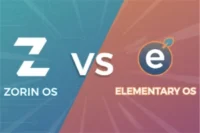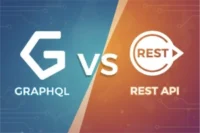HubSpot vs Salesforce – Features, Pricing & Comparison
Published: 24 Mar 2025
Choosing the right CRM software is important for managing customer relationships, improving sales, and automating marketing efforts. HubSpot and Salesforce are two of the most popular CRM solutions, each offering unique features tailored for different business needs. HubSpot is known for its ease of use and inbound marketing tools, while Salesforce is preferred for its advanced customization and scalability.

In this article, we’ll explore the key differences between HubSpot and Salesforce, comparing their features, pricing, integrations, and overall usability to help you decide which one suits your business best.
Quick Comparison Table: HubSpot vs Salesforce
Here’s a quick comparison table of Salesforce vs HubSpot to choose best:
| Feature | HubSpot | Salesforce |
| Ease of Use | Simple and beginner-friendly | Complex, requires training |
| Pricing | Free plan available, paid plans start at $50/month | No free plan, pricing starts at $25/user/month |
| Customization | Limited customization | Highly customizable |
| Integrations | 1,000+ integrations | 3,000+ integrations |
| Best For | Small businesses, startups | Enterprises, large organizations |
Key Differences Between HubSpot and Salesforce
Here’s a breakdown to understand key differences between HubSpot and Salesforce to choose the right CRM for you:
1. Ease of Use and User Interface
HubSpot:
- Offers a clean, intuitive, and user-friendly interface.
- Designed for beginners with a minimal learning curve.
- Simple drag-and-drop functionality for customization.
- Easy navigation for managing contacts, deals, and reports.
- Best for small to mid-sized businesses that need quick setup.
Salesforce:
- Provides a feature-rich but complex interface.
- Requires training to fully utilize advanced functions.
- Offers deep customization options for experienced users.
- Uses Lightning Experience for a more modern UI.
- Ideal for large enterprises needing highly configurable CRM.
2. Features and Functionality
HubSpot:
- Includes marketing automation, email marketing, and lead nurturing.
- Free CRM with essential tools for startups and small businesses.
- Provides sales pipeline management with built-in analytics.
- Strong focus on content management and SEO tools.
- Limited customization compared to Salesforce.
Salesforce:
- Advanced lead management, sales forecasting, and automation.
- AI-powered insights with Einstein Analytics.
- Supports complex business processes with workflow automation.
- Extensive third-party app marketplace (AppExchange).
- Scalable solutions for enterprises handling vast customer data.
3. Pricing and Plans
HubSpot:
- Offers a free CRM with basic features.
- Paid plans start at $50/month for small teams.
- Advanced plans (Marketing, Sales, and Service Hubs) can cost up to $3,600/month.
- More affordable for small businesses and startups.
Salesforce:
- No free version available.
- Pricing starts at $25/user/month for the Essentials plan.
- Enterprise-level plans can go up to $300/user/month.
- Higher cost but provides more customization and scalability.
4. Customization and Flexibility
HubSpot:
- Offers limited customization compared to Salesforce.
- Basic automation and reporting features.
- Easier to set up but lacks deep configuration options.
- Ideal for businesses that prefer ready-to-use tools.
Salesforce:
- Highly customizable with detailed workflows and automation.
- Supports custom dashboards, reports, and integrations.
- Requires developer support for advanced configurations.
- Best for enterprises needing tailored CRM solutions.
5. Integrations and App Marketplace
HubSpot:
- Connects with over 1,000 third-party apps.
- Seamless integration with HubSpot’s own Marketing and Sales Hub.
- Built-in automation and social media tools.
- Easier to integrate with small business tools.
Salesforce:
- AppExchange offers 3,000+ integrations.
- Compatible with advanced enterprise software.
- AI-driven automation for enhanced CRM performance.
- More robust API support for custom integrations.
6. Customer Support and Training
HubSpot:
- 24/7 customer support available via live chat, email, and phone.
- Free online academy for CRM and marketing training.
- Community support and documentation for troubleshooting.
Salesforce:
- Premium support available at an additional cost.
- Extensive training resources through Salesforce Trailhead.
- Large community forum for expert advice.
Which is Better: HubSpot or Salesforce?
- HubSpot is better for small businesses, startups, and teams looking for an easy-to-use CRM with built-in marketing tools. Its free plan and affordable pricing make it an attractive choice for those with limited budgets.
- Salesforce is better for large enterprises that require advanced CRM features, deep customization, and scalability. While it comes at a higher cost, its powerful automation and AI-driven analytics justify the investment for big organizations.
Conclusion
Both HubSpot and Salesforce are powerful CRM platforms, but the right choice depends on your business needs. If you prefer an affordable, beginner-friendly CRM with marketing tools, HubSpot is a great option.
If you need a highly customizable and scalable CRM for enterprise-level management, Salesforce is the better fit. Consider your budget, business size, and required features before making a decision.
FAQs about HubSpot and Salesforce
Here are some of the most FAQs related to HubSpot and Salesforce:
HubSpot is better for small businesses due to its ease of use, free plan, and built-in marketing tools.
HubSpot offers a free plan, while Salesforce has higher costs with no free option.
Yes, HubSpot can integrate with Salesforce, allowing businesses to use both platforms together.
HubSpot excels in marketing automation, SEO, and email marketing, making it a better choice for marketing-focused teams.
Yes, Salesforce provides advanced customization, AI-driven analytics, and scalability for large businesses.
No, HubSpot is designed to be user-friendly and does not require coding for setup and use.
Yes, data migration is possible using third-party tools or professional services.
HubSpot provides free customer support, while Salesforce requires premium support plans.
No, Salesforce does not offer a free plan.
Salesforce offers more advanced automation and AI-driven insights compared to HubSpot.

- Be Respectful
- Stay Relevant
- Stay Positive
- True Feedback
- Encourage Discussion
- Avoid Spamming
- No Fake News
- Don't Copy-Paste
- No Personal Attacks

- Be Respectful
- Stay Relevant
- Stay Positive
- True Feedback
- Encourage Discussion
- Avoid Spamming
- No Fake News
- Don't Copy-Paste
- No Personal Attacks





